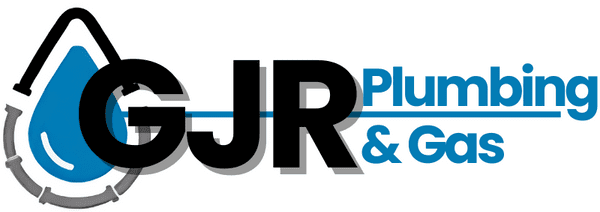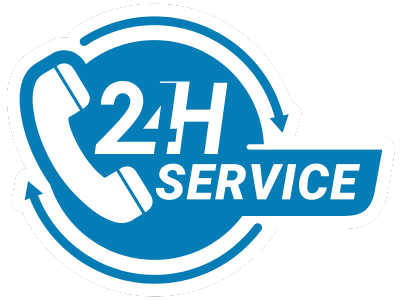
Read More
There are various types of residential properties in Brisbane that would require a plumber or gas fitter, including but not limited to the following:
- Single-family homes
- Multi-family homes, such as duplexes, townhouses, and apartment buildings
- Condominiums and other types of strata-titled properties
- Retirement and nursing homes
- Student housing and dormitories
- Mobile homes and RVs
- Houseboats and other watercraft with plumbing systems
In general, any residential property that has plumbing systems or fixtures such as toilets, sinks, faucets, water heaters, showers, bathtubs, or pipework could require the services of a plumber.
Common reasons for calling a plumber in residential properties include installing new plumbing systems, repairing leaks or clogs, replacing or upgrading fixtures, and maintaining or servicing existing plumbing systems.
Read More
There are various types of commercial properties in Brisbane that would require a plumber or gas fitter, including but not limited to:
- Office buildings
- Retail stores
- Restaurants and cafes
- Hotels and motels
- Hospitals and healthcare facilities
- Schools and educational institutions
- Apartment complexes and other multi-unit residential buildings
- Manufacturing and industrial facilities
- Warehouses and storage facilities
- Sports and entertainment venues
- Government buildings and public facilities such as libraries and community centres
- Construction sites
In general, any commercial property that has plumbing systems or fixtures such as toilets, sinks, faucets, water heaters, or pipework could require the services of a plumber.
Read More
There are various types of industrial properties in Brisbane that would require a plumber, including but not limited to the following:
- Manufacturing plants and factories
- Warehouses and storage facilities
- Laboratories and research facilities
- Chemical processing plants
- Power generation and utility facilities
- Mining and resources facilities
- Food processing and packaging plants
- Pharmaceuticals and medical equipment manufacturing facilities
- Textile and clothing manufacturing facilities
- Printing and publishing facilities
- Recycling and waste management facilities
In general, any industrial property that has plumbing systems or fixtures such as water supply lines, drainage systems, water treatment equipment, or specialised equipment that requires water or gas supply could require the services of a plumber.
Common reasons for calling a plumber in industrial properties include designing and installing plumbing systems, repairing leaks or clogs, upgrading or replacing fixtures, and maintaining or servicing existing plumbing systems.
Read More
Clogged drains and pipes
Clogged drains and pipes are a common plumbing red flag that can be identified during a standard inspection. If water is pooling or dripping from the walls or ceiling of a building, it could be a sign of clogged plumbing pipes or drainage systems. Clogging can cause damp areas, rot, mildew, mould, and other structural damage, leading to costly repairs and ongoing maintenance costs.
Before buying a property, consider a pre-purchase plumbing inspection to identify any potential plumbing issues. Tree roots can often cause clogged drains and pipes and should be identified during the inspection. If you notice any of the above plumbing red flags during a pre-purchase inspection, immediately prevent costly repairs and maintain the integrity of your building’s plumbing system.
Poor water pressure
Poor water pressure can be an indicator of plumbing problems, such as a leaky plumbing system or clogged pipes. When water pressure is low, it can be difficult to flush a toilet or drain water out of the wash basin. Additionally, low water pressure can lead to leaky faucets and fixtures.
If you notice low water pressure in your home, it’s important to investigate the source of the problem and take steps to address the issue. DIY plumbing fixes, such as installing a water-efficient shower head or replacing worn plumbing fixtures, can be a sign of plumbing issues.
In addition to investigating the source of poor water pressure, it’s also important to have regular plumbing inspections to identify tree roots in drains that may be causing low water pressure. Damp areas and pooled water can also be visual signs of plumbing problems.
By taking steps to address poor water pressure and conducting regular plumbing inspections, you can ensure your pipes are functioning properly and remain safe for your family.
Leaks or moisture damage
Plumbing leaks are common plumbing problems that can cause subsequential damage if left unaddressed. A pre-purchase plumbing inspection is a valuable investment that can help identify potential risks of leaks or water damage in a property. A pre-purchase plumbing inspection includes checking for water supply pressure, gutters and downpipes, sewer pipes, and hot water heaters.
Additionally, it is important to check the drainage system of any nearby trees. Tree roots can penetrate pipes and cause blocked drains, leaks, or bursts in pipes. This issue can be easily identified during a pre-purchase plumbing inspection and can often be resolved with simple solutions such as replacing pipes or fixing leaky faucets.
Water heater issues
Water heater problems can cost you money and harm your plumbing system. Plumbing issues such as water heaters that over-heat or under-heating water pipes can create dangerous situations. If you notice any of the following signs of water heater issues, it is important to address the problem immediately.
The first sign of water heater problems is when hot water doesn’t flow consistently or continuously. The water may feel hot one moment and cold the next. Another sign of water heater problems is when hot water is intermittently turned off in the plumbing system.
This can be a symptom of a leaky water heater. Other common signs of water heater problems include weak or no hot water pressure, a foul-smelling odour, or a gas leak. If you suspect your water heater is malfunctioning, it is essential to have an inspection done by a professional plumber as soon as possible.
Age of plumbing fixtures and pipes
The age of plumbing fixtures and pipes can be a major indicator of potential issues. Old plumbing can cause problems such as leaky pipes, low water pressure, and corrosion. A pre-purchase inspection will reveal the condition of the plumbing in a home, allowing you to make an informed decision about the property.
In inspection, plumbers will check for signs of corrosion, leakage, and other issues that can lead to costly repairs down the line. If you’re looking to buy a home, doing a thorough plumbing inspection before moving in is essential. This will help protect you from potential problems and ensure that the plumbing works properly in your new home.
Signs of corrosion or rust
Plumbing components such as pipes, taps, and valves can corrode or rust over time. This can lead to costly damage and potential health risks. Corrosion and rust can be identified through visual inspection signs, such as discolouration, flaking, pitting, and powdery residue.
Homeowners should be aware of any changes in their water pressure, discolouration of water from the tap, or any other strange noises coming from their pipes, as these could be signs of corrosion or rust.
To prevent plumbing problems from escalating out of control, homeowners need to thoroughly inspect the plumbing system, including checking for signs of corrosion or rust in pipes, fixtures, supply lines and drains. If you notice any unusual issues with your plumbing system, reach out to a professional plumber immediately for an inspection and solution.
What types of issues can be detected in a pre-purchase plumbing inspection?
A pre-purchase plumbing inspection can detect a range of issues including leaks, clogs, corrosion, water pressure problems, faulty fixtures, outdated plumbing systems, and potential safety hazards such as gas leaks. The inspection can also identify any necessary repairs or upgrades to the plumbing system to ensure it meets current building codes and standards.
How can a pre-purchase plumbing inspection help me avoid expensive repairs in the future?
A pre-purchase plumbing inspection can help you avoid expensive repairs in the future by identifying any existing or potential issues with the plumbing system before you purchase the property.
This allows you to negotiate repairs or a lower sale price with the seller before you finalize the purchase. Additionally, the inspection can provide you with a detailed report of the plumbing system’s condition, which can help you prioritize necessary repairs or upgrades and budget for them accordingly.
By addressing any issues before they become more serious and costly, you can save money in the long run and enjoy peace of mind knowing your plumbing system is in good condition.
What should I look for when selecting a plumber to perform a pre-purchase plumbing inspection?
When selecting a plumber to perform a pre-purchase plumbing inspection, consider the following factors:
- Qualifications and experience: Look for a licensed and experienced plumber with expertise in performing pre-purchase plumbing inspections.
- Reputation and references: Read reviews, check references, and ask for recommendations from friends or family members who have had similar inspections performed.
- Insurance and warranties: Ensure the plumber has liability insurance and offers warranties on their work.
- Inspection methods and equipment: Inquire about the methods and equipment the plumber uses to conduct inspections to ensure they use modern and thorough techniques.
- Cost: Compare the cost of services from different plumbers and ensure that the cost is reasonable and transparent, with no hidden fees or charges.
By taking these factors into account, you can find a reputable and qualified plumber to perform a thorough pre-purchase plumbing inspection.
Are there any potential risks associated with skipping a pre-purchase plumbing inspection?
Yes, there are potential risks associated with skipping a pre-purchase plumbing inspection. Without a thorough inspection, you may not be aware of existing or potential plumbing problems in the property you are considering purchasing. These issues can be costly to repair or replace and could compromise the property’s safety.
For example, leaks or water damage that go unnoticed could lead to mould growth and structural damage over time. Similarly, if the plumbing system is outdated or poorly maintained, it could pose a safety hazard to you and your family, such as gas leaks or carbon monoxide poisoning.
By skipping a pre-purchase plumbing inspection, you also risk discovering these issues after you have already purchased the property, potentially leading to unexpected expenses and stress. Overall, a pre-purchase plumbing inspection is an important step in ensuring the safety and condition of a property and can save you money and headaches in the long run.









